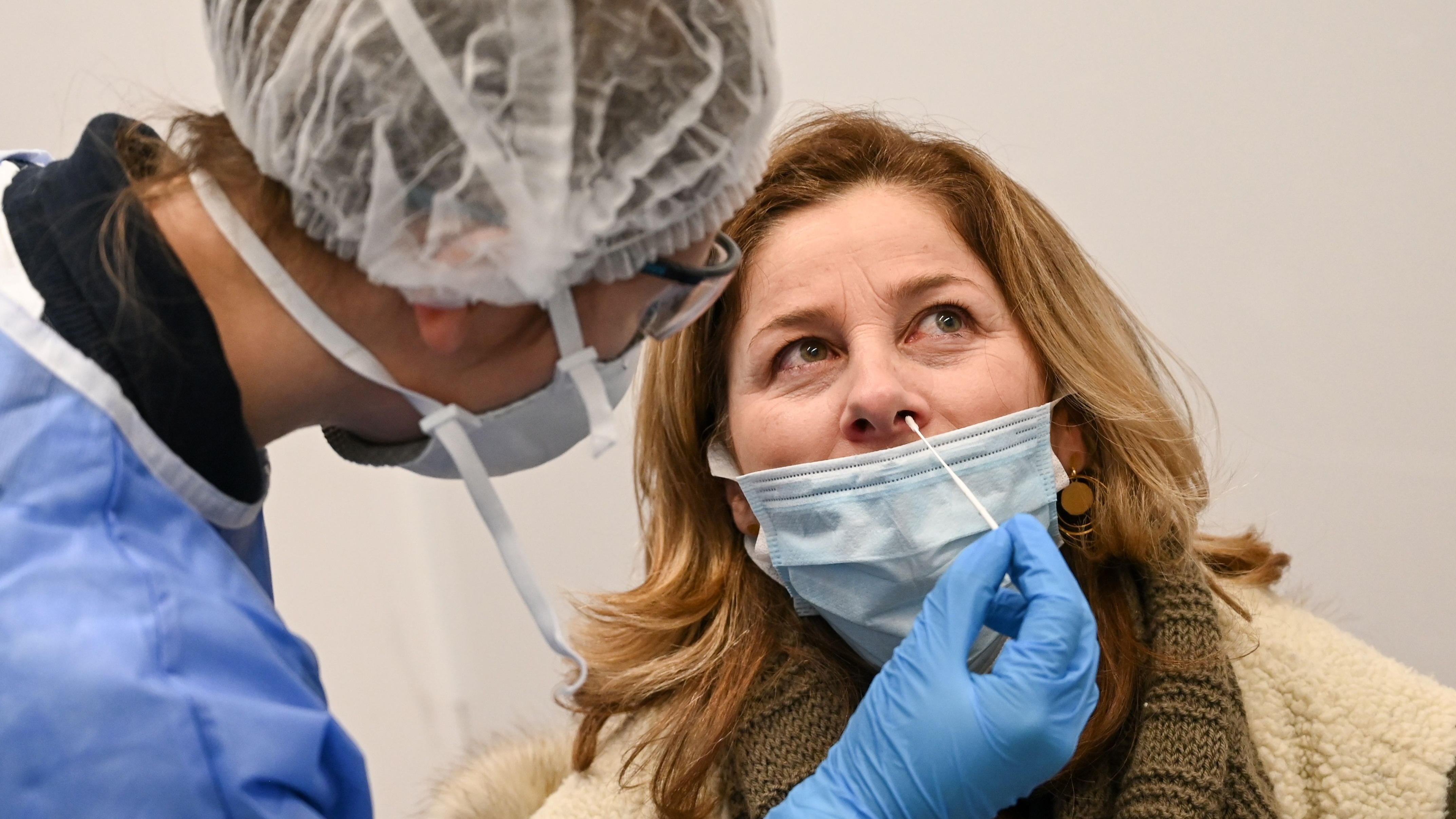London’s new South African Covid-19 variant cluster
Department of Health launches ‘largest surge testing operation to date’ in Wandsworth and Lambeth

A free daily email with the biggest news stories of the day – and the best features from TheWeek.com
You are now subscribed
Your newsletter sign-up was successful
Surge testing has begun in two south London boroughs after a “significant” cluster of the South African Covid-19 variant was identified in the area.
Wandsworth and Lambeth will have additional testing after 44 cases of the South African variant were confirmed, and an additional 30 “probable” cases were found, reports the BBC. All suspected cases are now isolating or have completed their isolation, and their contacts have been traced.
The Department of Health and Social Care said it had launched the “largest surge testing operation to date” in an attempt to suppress possible new cases of the variant.
The Week
Escape your echo chamber. Get the facts behind the news, plus analysis from multiple perspectives.

Sign up for The Week's Free Newsletters
From our morning news briefing to a weekly Good News Newsletter, get the best of The Week delivered directly to your inbox.
From our morning news briefing to a weekly Good News Newsletter, get the best of The Week delivered directly to your inbox.
Dr Susan Hopkins, chief medical adviser for NHS Test and Trace, described the cluster of cases as ”significant“ and called on local people to “play their part” in stopping the spread.
“PCR testing is now available for all and I would strongly encourage everyone, whether they live, work or travel through the boroughs, to get tested even if they don’t have any symptoms of coronavirus,” she said.
Extra testing will be made available in Lambeth and Wandsworth, with new testing sites set up to allow residents to access PCR tests, in addition to the twice-weekly rapid “lateral flow” testing that the government has made available to all people in England for free.
All people aged 11 and over who live, work or travel through the affected boroughs are urged to take a PCR test, even if they are not displaying any symptoms.
A free daily email with the biggest news stories of the day – and the best features from TheWeek.com
UK authorities have been concerned about the South African variant coming over from Europe, which has seen significant pockets of the variant. The continent, however, remains mostly affected by the so-called “Kent” variant of the disease.
One “very senior scientific government adviser” told ITV in March that the South African strain of Covid-19 “is the one variant most likely to have some resistance to the vaccine so it could cause problems, even amongst the vaccinated population”.
However, there is “no evidence” that the South African variant causes “more serious illness for the vast majority of people who become infected”, says the BBC.
“As with the original version, the risk is highest for people who are elderly or have significant underlying health conditions,” said the broadcaster.
Sorcha Bradley is a writer at The Week and a regular on “The Week Unwrapped” podcast. She worked at The Week magazine for a year and a half before taking up her current role with the digital team, where she mostly covers UK current affairs and politics. Before joining The Week, Sorcha worked at slow-news start-up Tortoise Media. She has also written for Sky News, The Sunday Times, the London Evening Standard and Grazia magazine, among other publications. She has a master’s in newspaper journalism from City, University of London, where she specialised in political journalism.
-
 The environmental cost of GLP-1s
The environmental cost of GLP-1sThe explainer Producing the drugs is a dirty process
-
 Nuuk becomes ground zero for Greenland’s diplomatic straits
Nuuk becomes ground zero for Greenland’s diplomatic straitsIN THE SPOTLIGHT A flurry of new consular activity in the remote Danish protectorate shows how important Greenland has become to Europeans’ anxiety about American imperialism
-
 ‘This is something that happens all too often’
‘This is something that happens all too often’Instant Opinion Opinion, comment and editorials of the day
-
 A Nipah virus outbreak in India has brought back Covid-era surveillance
A Nipah virus outbreak in India has brought back Covid-era surveillanceUnder the radar The disease can spread through animals and humans
-
 Covid-19 mRNA vaccines could help fight cancer
Covid-19 mRNA vaccines could help fight cancerUnder the radar They boost the immune system
-
 The new Stratus Covid strain – and why it’s on the rise
The new Stratus Covid strain – and why it’s on the riseThe Explainer ‘No evidence’ new variant is more dangerous or that vaccines won’t work against it, say UK health experts
-
 RFK Jr. vaccine panel advises restricting MMRV shot
RFK Jr. vaccine panel advises restricting MMRV shotSpeed Read The committee voted to restrict access to a childhood vaccine against chickenpox
-
 RFK Jr. scraps Covid shots for pregnant women, kids
RFK Jr. scraps Covid shots for pregnant women, kidsSpeed Read The Health Secretary announced a policy change without informing CDC officials
-
 New FDA chiefs limit Covid-19 shots to elderly, sick
New FDA chiefs limit Covid-19 shots to elderly, sickspeed read The FDA set stricter approval standards for booster shots
-
 RFK Jr.: A new plan for sabotaging vaccines
RFK Jr.: A new plan for sabotaging vaccinesFeature The Health Secretary announced changes to vaccine testing and asks Americans to 'do your own research'
-
 Five years on: How Covid changed everything
Five years on: How Covid changed everythingFeature We seem to have collectively forgotten Covid’s horrors, but they have completely reshaped politics